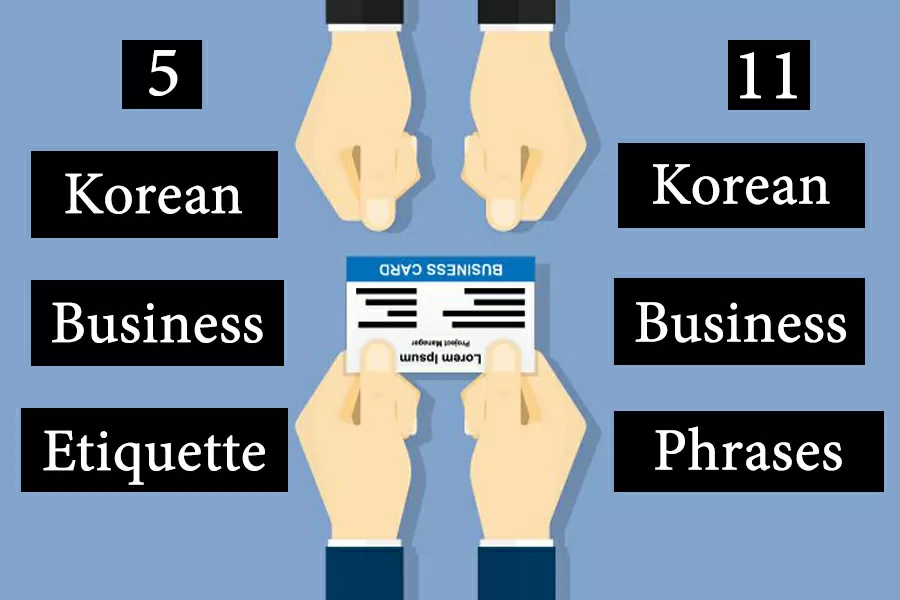

1. Respect and Age
- Korean culture places great importance on respect, especially towards people who are older or in higher positions in the company.
- Use honorifics such as 씨 (ssi) for Mr/Mrs and 님 (nim) for someone’s title (for example, Kim Director Kim).
- Avoid calling your Korean business partners first names unless they ask you to.
- Always do深深鞠躬 (深深鞠躬 – 深深鞠躬, 深深鞠躬深深鞠躬 – sum-sum kkung-kum) , namely bowing deeply as a respectful greeting when meeting and saying goodbye. The lower your bow, the more respect you show.
2. Pertukaran Business Card (Business Card – Myeongham)
- Business cards (名刺 – Myeongham) are very important in Korean business culture. Always carry plenty of business cards and treat other people’s business cards with respect.
- When receiving a business card, use both hands to receive it and read it carefully.
- Don’t write or take notes on the business card in front of the person.
- Place the business card of someone in a higher position in a place that looks honorable, for example in a special business card holder.
3. Non-Verbal Communication
- Avoid excessive physical contact such as back pats or hugs.
- Keeping a decent sight distance is recommended.
- Direct eye contact is considered a sign of respect, but prolonged staring can be considered impolite.
- Avoid putting your hands in your pockets or putting your hands in the creases of your hands.
- Pointing with your finger is considered impolite, use your open palm to gesture.
4. Dress Style
- A professional and neat appearance is very important.
- Conservative business attire is recommended, such as jackets and trousers for men and formal skirts or trousers for women.
- Avoid wearing clothes that are too revealing or casual.
5. Eating & Drinking Culture
- Business dinners (회식 – hoesik) are often held to build relationships.
- Wait for the most senior person to start eating and drinking first.
- It’s common to pour a drink for someone else, and someone else will pour it for you in return.
- Do not refuse offers to drink, but you can drink little by little.
- When eating soup or noodles, slurp is considered normal.
- Let the older person pay the bill unless you insist on paying.
6. Giving and Receiving Goods
- Use both hands when giving or receiving things to other people, especially to people who are older or in a higher position.
7. Be Polite and Patient
- Business decisions in South Korea often take longer to make.
- Avoid being impatient or pushy.
- Be polite and maintain good communication during the negotiation process.
**extra points:**
- Avoid discussing sensitive topics such as politics or the military.
- It’s important to learn some basic phrases in Korean to show your respect and effort.
- Korean business culture can change over time, so always be open to learning and adapting.
By understanding and applying Korean business ethics, you can interact with Korean business partners better and increase your chances of achieving business success in South Korea.


No Comments